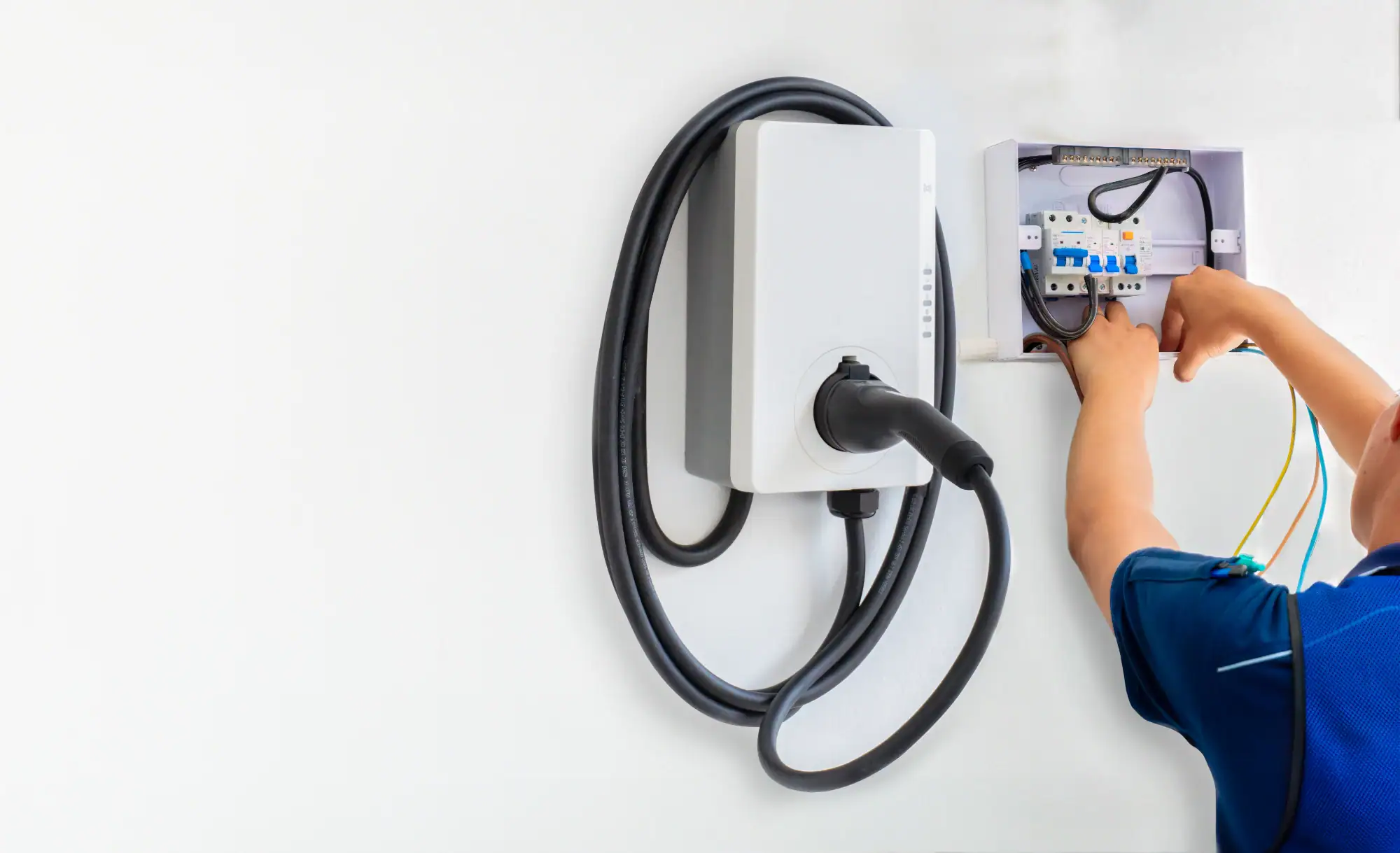Professional EV charger installation that ends your reliance on public charging stations and powers your electric vehicle overnight.
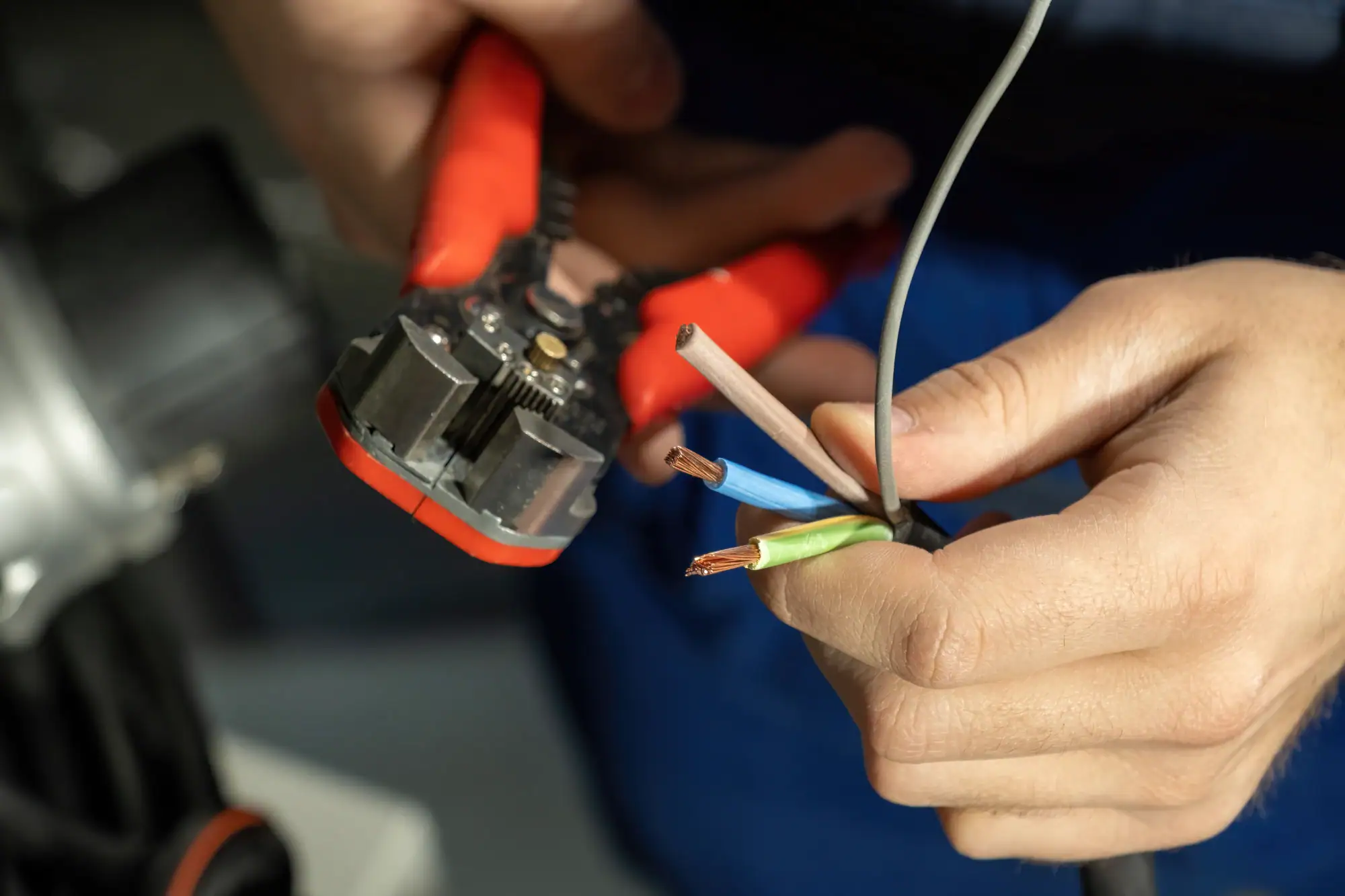
Hear from Our Customers
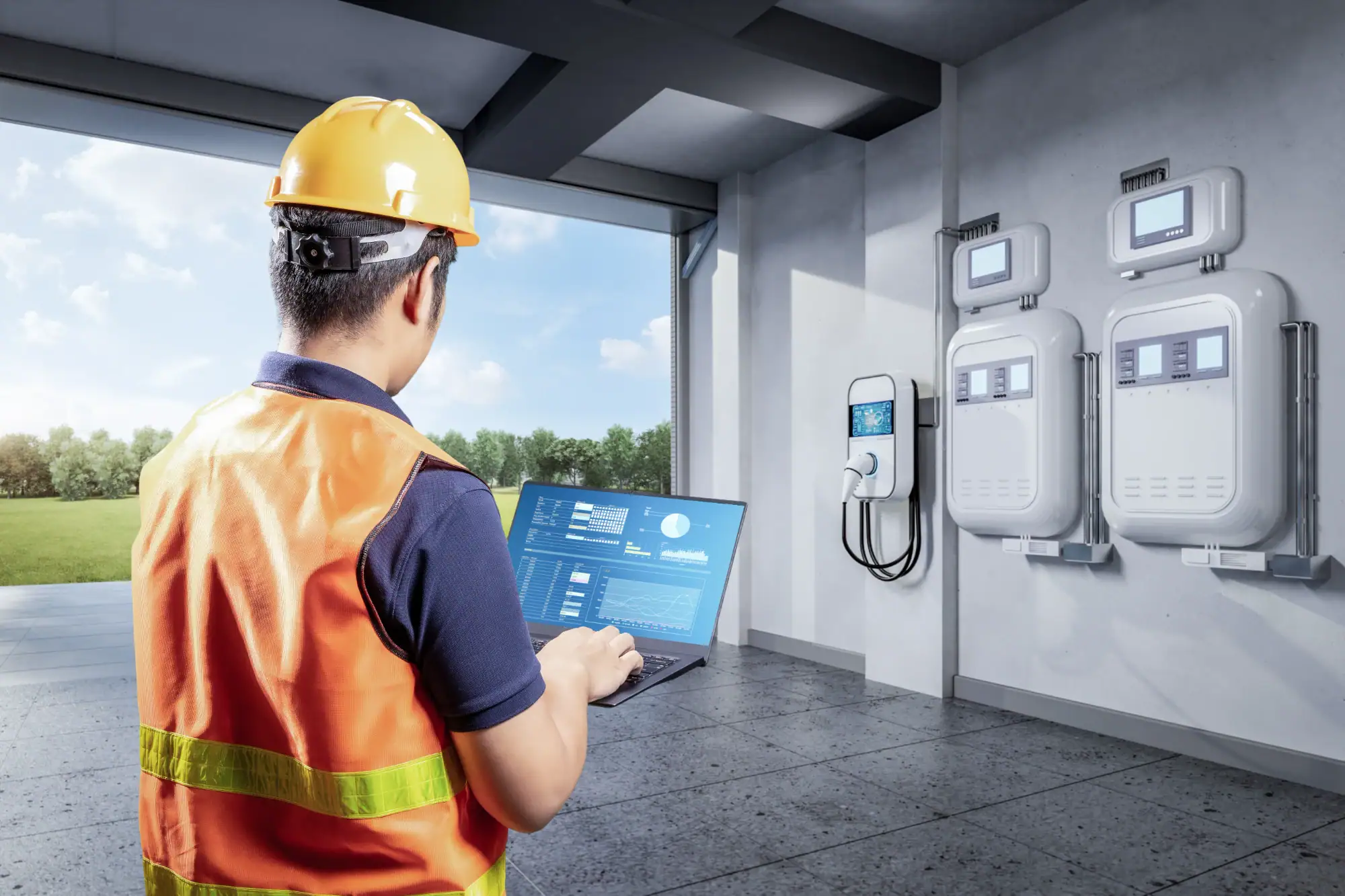
You bought an electric vehicle for convenience, not to spend time hunting for available charging stations. With professional home EV charger installation, you’ll wake up every morning to a fully charged vehicle ready for your day.
Your garage becomes your personal charging station. No more planning trips around charging stops or waiting behind other drivers at public stations. Just plug in when you get home and let your car charge while you sleep.
The difference is immediate. Instead of 12+ hours on a standard outlet, Level 2 home charging cuts your charging time to 4-6 hours for most vehicles. That means real convenience that fits your schedule, not the other way around.
Jimco Electric has been solving electrical problems for Dixmoor homeowners for 25 years. We specialize in residential electrical services, from emergency repairs to major upgrades like EV charger installations.
What sets us apart is our focus on getting the job done right the first time. We’re licensed, bonded, and insured, with ICC certification for EV charger installation as required by Illinois law. When you’re dealing with 240-volt electrical work, that expertise matters.
We understand that Dixmoor residents need reliable service from professionals who show up when we say we will. No surprises, no cutting corners, just solid electrical work that keeps your family safe and your EV charged.
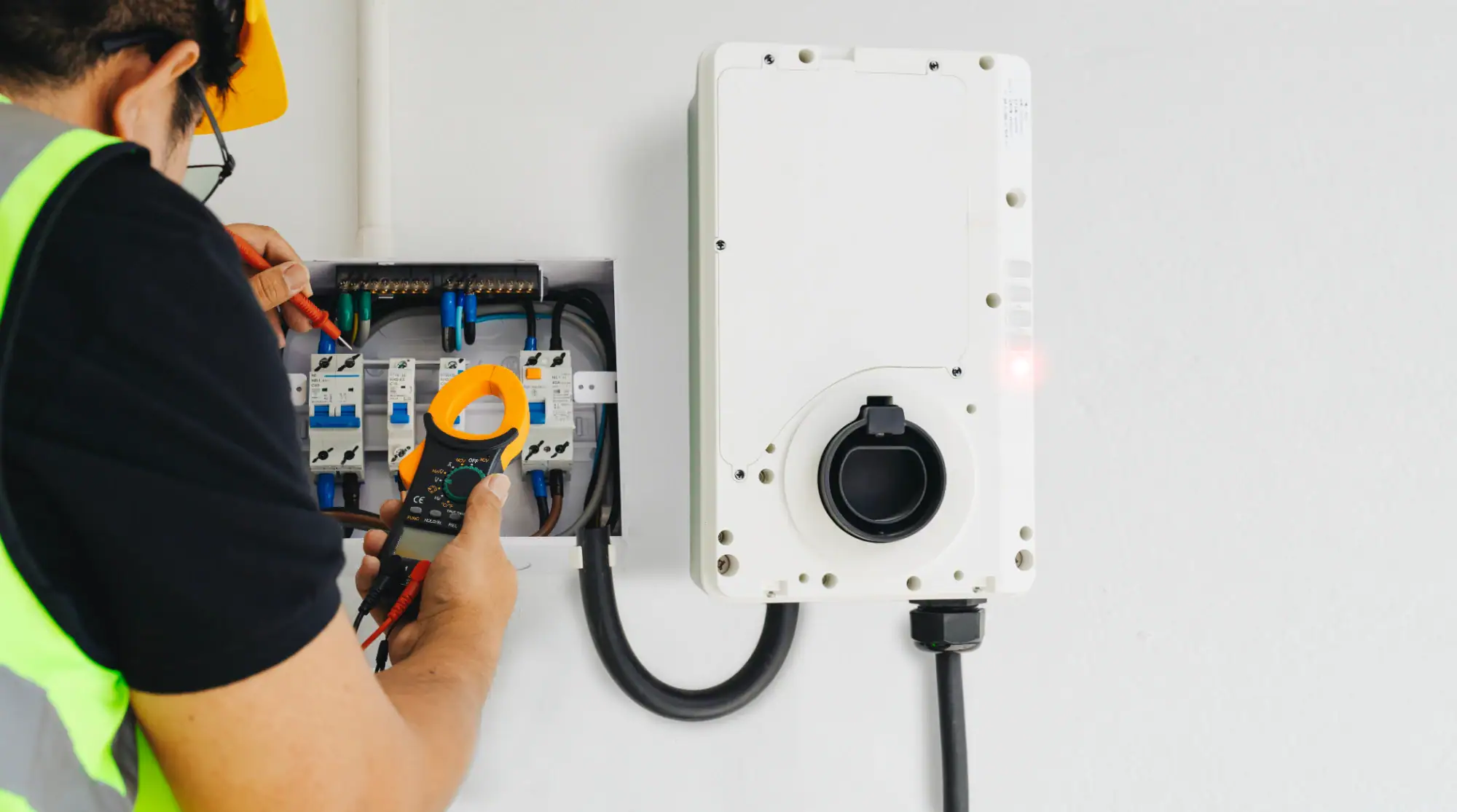
The process starts with evaluating your electrical panel and determining if it can handle the additional load. Most EV chargers require a dedicated 240-volt circuit, similar to what powers your dryer or electric stove.
Next comes running the proper wiring from your panel to the charging location. This includes installing the appropriate circuit breaker, running conduit if needed, and ensuring everything meets current electrical codes. The work requires permits in most cases, which we handle as part of the installation.
Finally, we mount and connect your EV charger, test the system, and walk you through how to use it safely. The entire process typically takes 4-6 hours, depending on the distance from your panel to the charging location and any electrical upgrades needed.
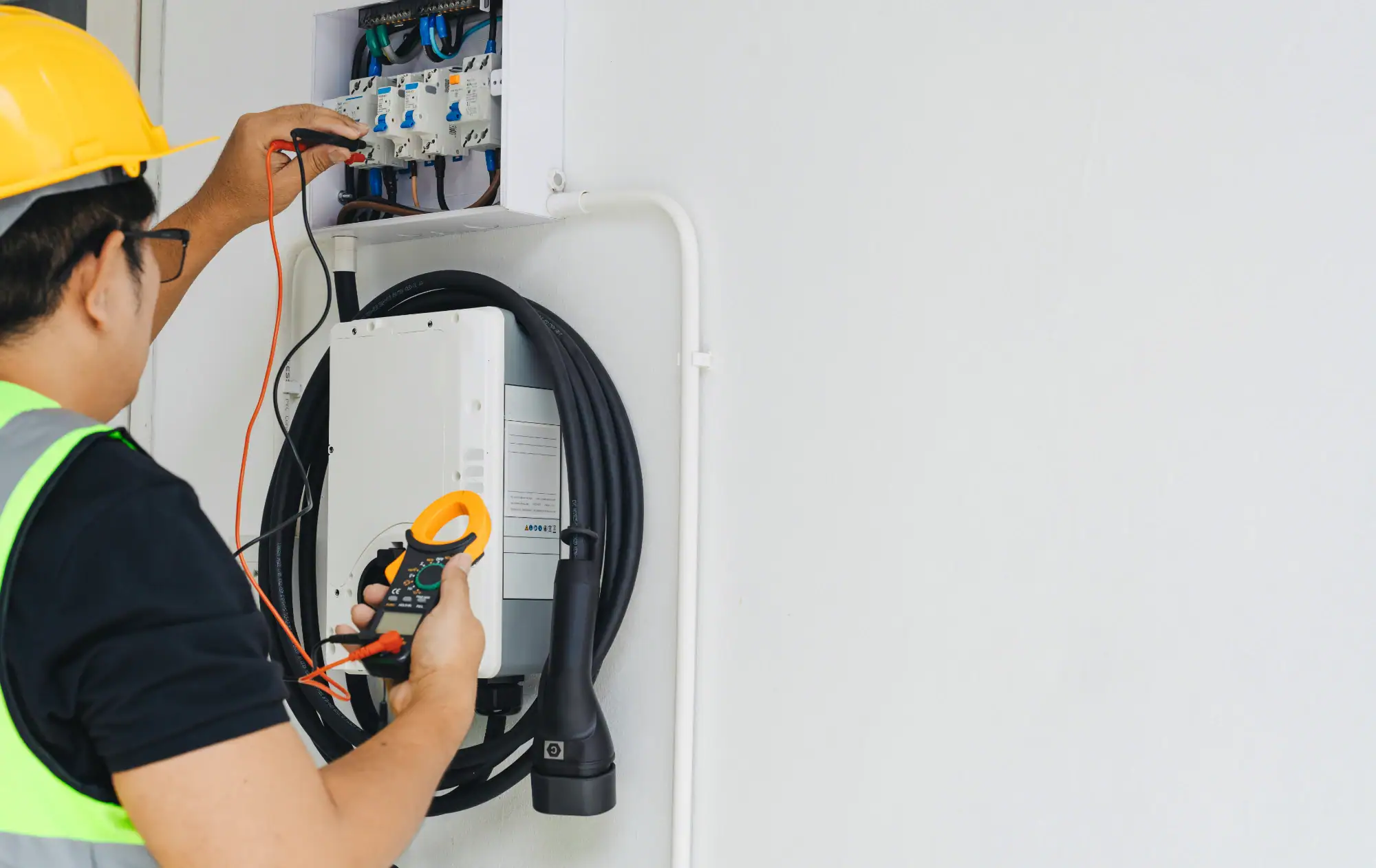
Ready to get started?
Every installation includes a thorough electrical assessment, proper permitting, and professional installation that meets all local codes. We handle the technical details so you don’t have to worry about compliance or safety issues.
For Dixmoor residents, this is especially important given Illinois’s new requirements for EV-ready infrastructure in homes. Whether you’re upgrading an existing home or ensuring your property meets current standards, professional installation protects your investment.
The service includes electrical panel evaluation, load calculations, proper circuit installation, and final testing. We also provide guidance on which EV charger models work best for your specific vehicle and charging needs. Military, first responders, seniors, teachers, and students receive special discounts on installation services.
